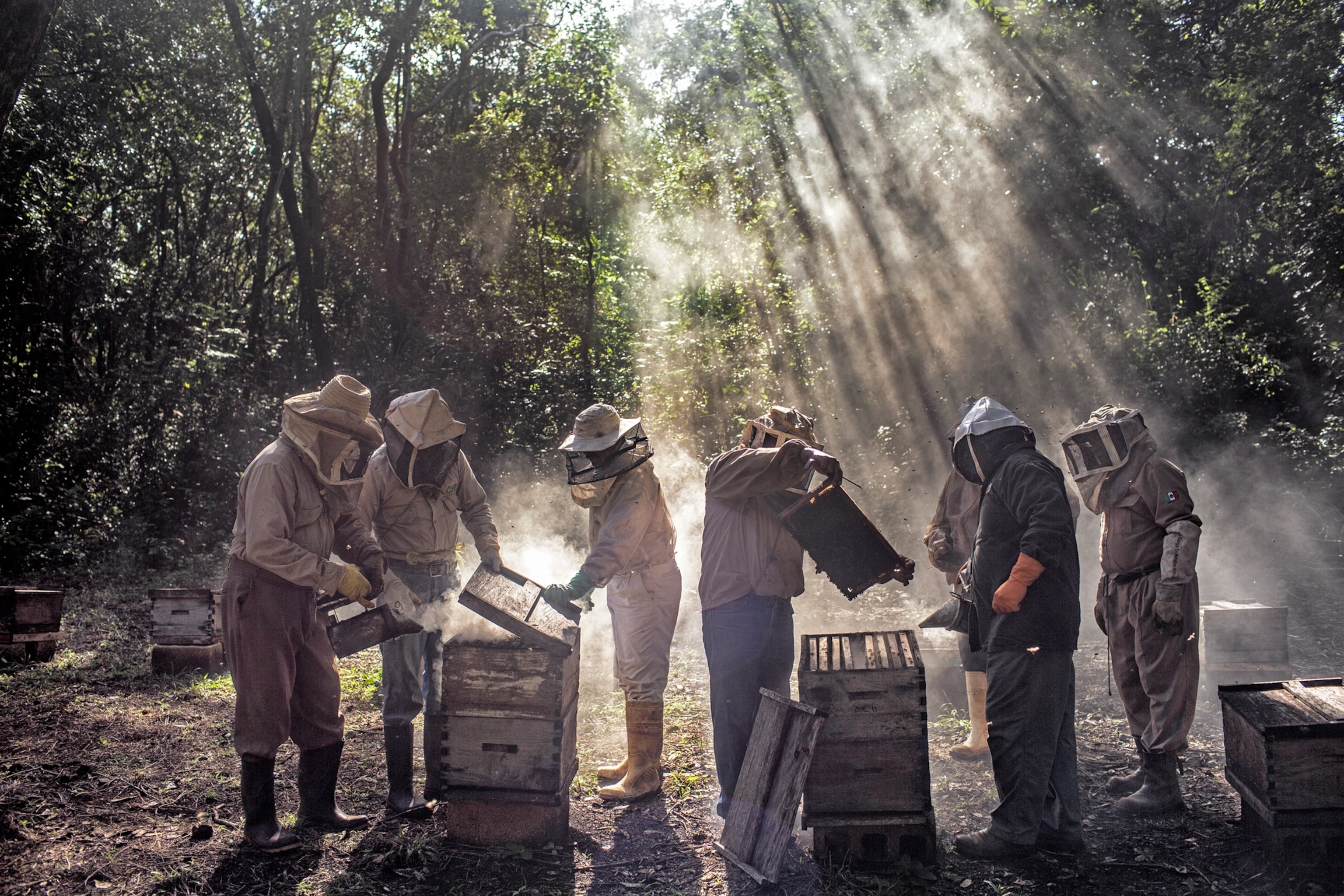
Beekeepers vs. Mennonites: Two traditional cultures clash in Mexico
Maya beekeepers see their way of life threatened by rapidly growing Mennonite farms.
‘How did it start?’ asks Everardo Chablé. He’s propped on a stool in his living room as the daylight fades outside. The only noise in this tiny Mexican town on the Yucatán Peninsula—where there’s no cell signal and little electricity—comes from the music his father is blasting in the yard. He speaks up.
“For thousands of years the Maya people had bee culture. Then the Mennonites came with large machines and started to deforest large parts of land where the bees feed. We had virgin forest with very delicate ecosystems—deer, toucans—but most importantly, bees that keep up life. When deforestation started, they destroyed everything from millennia back.”
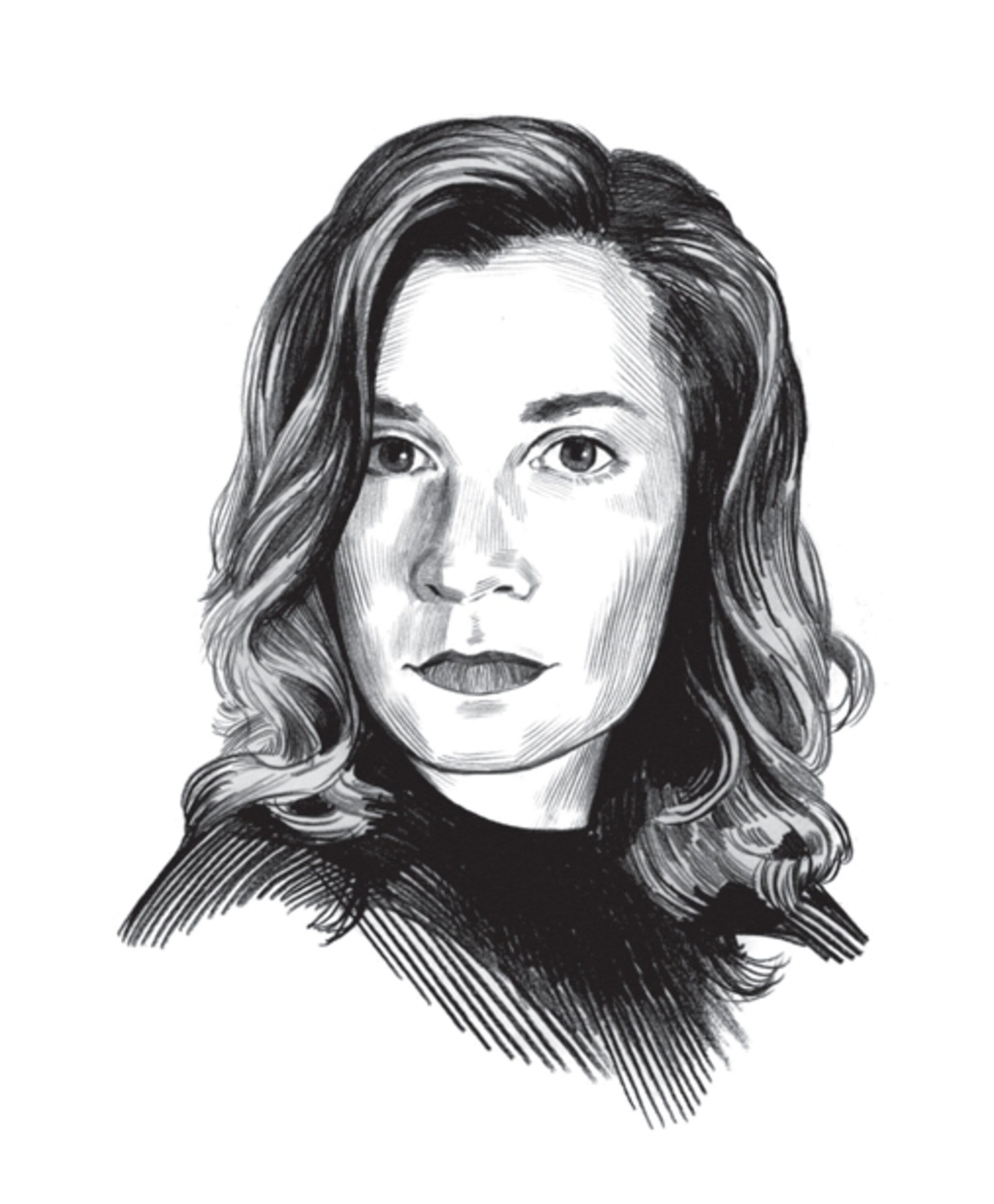
Chablé, a stocky and serious beekeeper in his late 20s, is describing a simmering dispute that has unsettled this sliver of the Yucatán Peninsula. Since the 1930s, Maya beekeepers have made this peninsula, site of the temples of their ancestors as well as the largest remaining tropical forest in Mexico, into a world-class honey producer. But since the 1980s, they’ve had to share the region with another tradition-rich—and rapidly expanding—community: Old Colony Mennonites. The most conservative members of an insular religion, these Mennonites speak the Low German of their 16th-century ancestors and eschew modern amenities such as electricity, phones, and cars—but not the tools of industrial agriculture. They have transformed large swaths of Yucatán forest into crop fields.
“On this land, all original plants are gone and animals are gone, and there’s a different species,” Chablé says. “Transgenic soy.”
Beekeepers say that the large-scale agriculture practiced by the Mennonites—and especially transgenic, or genetically modified (GM), soy and the pesticides sprayed to protect it—are killing their hives and contaminating their honey. In 2012 the beekeepers sued the government and won: The Mexican supreme court banned transgenic soybeans four years ago. The win, with its David and Goliath qualities, made international news. But on the ground, little has changed.
“If the situation with agriculture keeps developing, we will lose our bees,” Chablé says. “In 20 years everything here will be destroyed.”
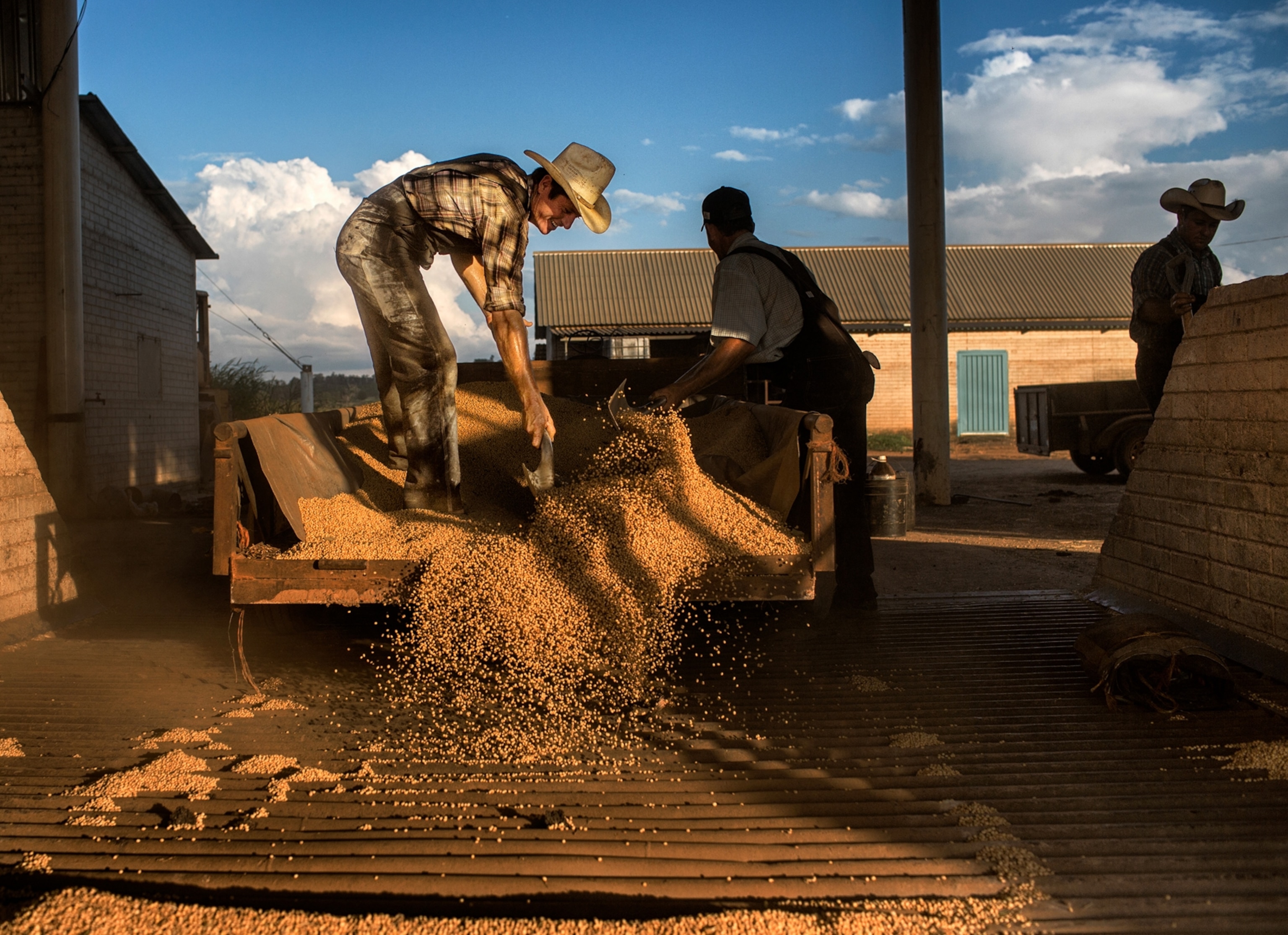
The sleepy town of Hopelchén is the epicenter of this conflict. As the agricultural and beekeeping hub of the state of Campeche, it’s the main producer of GM soy in the Yucatán Peninsula and is home to some 8,000 beekeepers—a third of the region’s total. Cell networks disappear as soon as the town ends, and time rewinds a century. During the day, the plazas of small Maya villages are desolate, their inhabitants deep in the forest tending to traditional farm plots—called milpas—where they grow corn, beans, and squashes. Many keep beehives nearby to pollinate the plants.
The roads turn to dirt at the entrance of the Mennonite colonies, and the landscape flattens into fields of corn and soybeans. Tractors rumble past single-level farmhouses and lawns strewn with machinery as they make their way to towering silver silos. Leather-skinned men in cowboy hats steer rickety horse carts while children in bonnets bounce in the back. The men give passing vehicles a two-finger wave.
Some 8,000 Mennonites first came to northern Mexico in the 1920s from Canada, where they’d arrived by way of western Europe, Russia, and Ukraine. Since the 1700s, the conservative group has been on the move, skirting military conscription and mandated public education and, more recently, seeking fertile land. In Mexico they were free to keep to themselves.
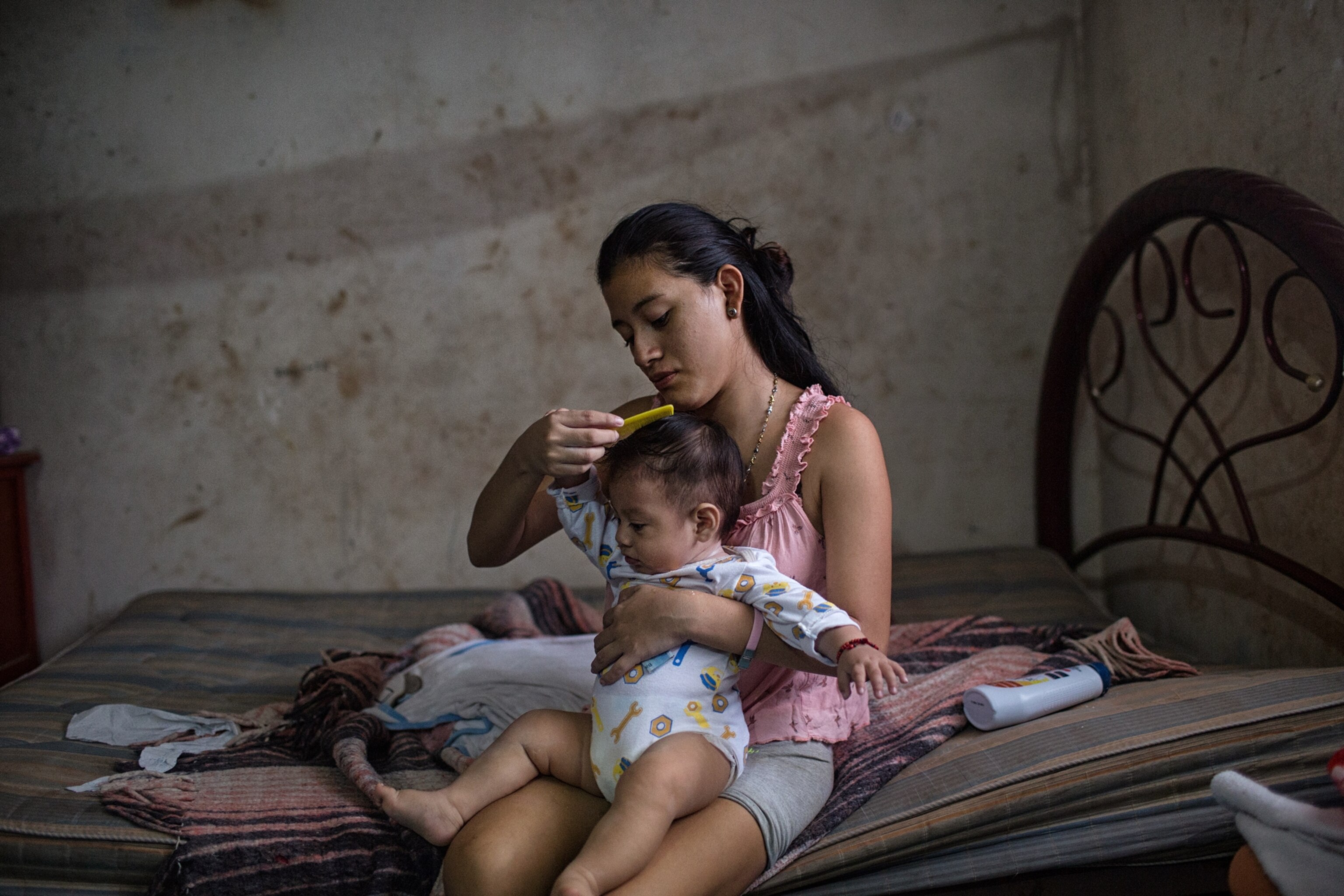
In the 1980s some left the arid Chihuahua region in the north and gravitated toward the Yucatán Peninsula, where water was plentiful. There they were able to buy land at cheaper prices, encouraged by federal and state governments, which hoped they would help modernize agriculture. Now more than 100,000 Mennonites live in colonies throughout Mexico.
Starting in 2007, the Mexican government began encouraging soybean production in an effort to reduce its trade deficit. A few years later, it permitted the agro-giant Monsanto to sell GM soybeans, and nearly 150,000 acres on the Yucatán Peninsula were authorized for planting. (Transgenic corn is still illegal in Mexico.) The Mennonites could afford the amount of land and industrial machinery to plant, spray, and harvest GM crops. Traditional as they are, they seized this modern opportunity.
Today about 12,000 Mennonites live in 18 colonies in Campeche, where they control a large amount of farmland. Many avoid driving cars but not tractors or combines. They speak a unique dialect of Low German with roots in 16th-century Prussia. Many of the men also speak Spanish, but fewer women do, since local interaction is confined to drivers and farmhands. The Mennonites produce 90 percent of the region’s soybeans.
Honey, meanwhile, is a main source of income for thousands of Maya families. Some 20,000 tons of it leave the Yucatán Peninsula annually, largely for the U.S. and the European Union. As Mexico was approving GM soybeans, Europe announced that honey shipments would be tested for traces of GM organisms, labeled, and possibly rejected. All this made beekeepers nervous. Then, as they began to observe the effects on their bees, they became furious.
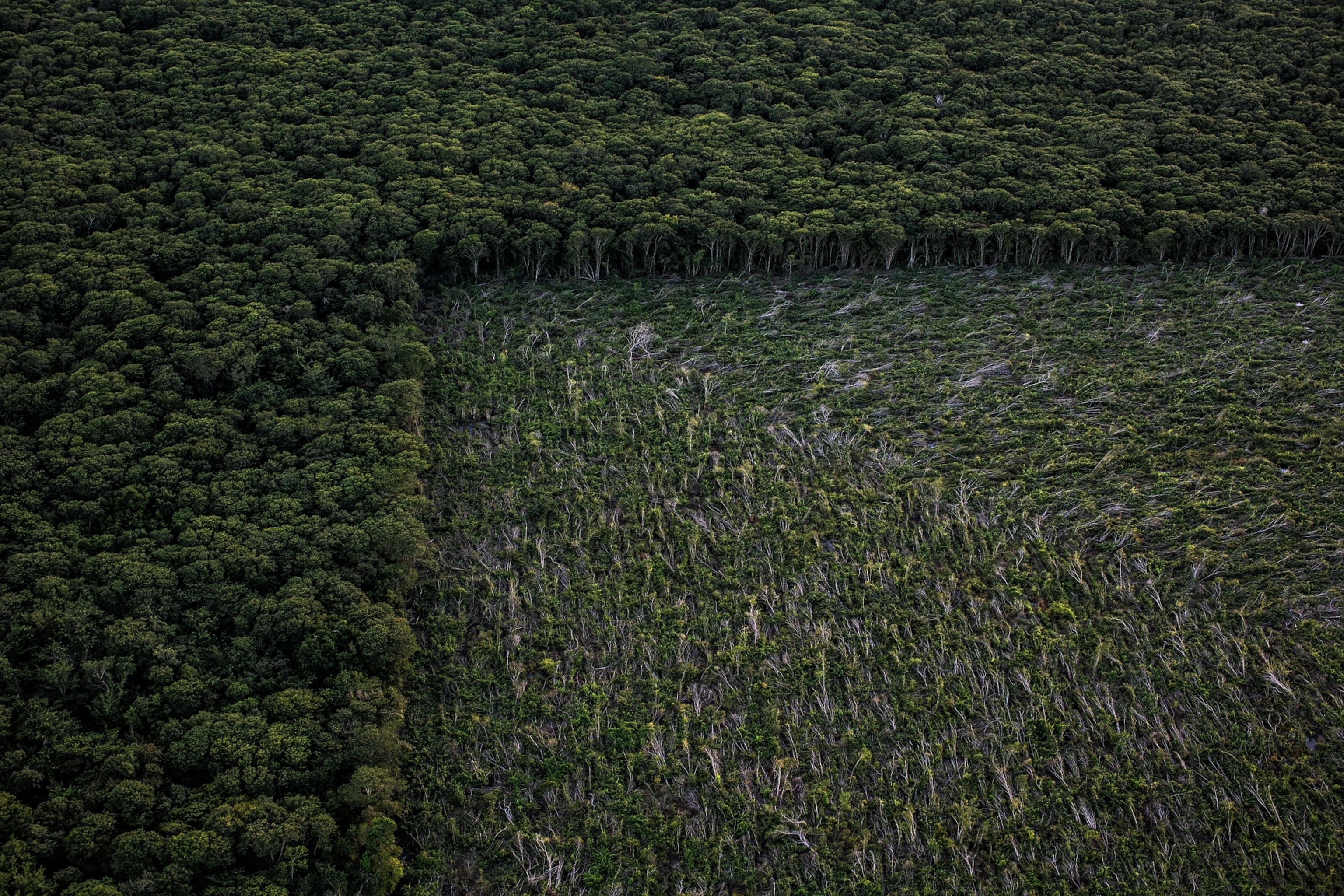
“They’re not awake yet; we’ll wake them,” says Leydy Pech, entering a small enclosure in a shady forest, flanked by a group of female beekeepers. A low wooden stand holds a row of hollow logs, each with a tiny hole through which the bees enter. One by one, the logs are sawed open to reveal a golden honeycomb. Bees swarm the air as Pech quickly pries a honeycomb loose and transfers it into a larger log, where it can continue to grow.
The ends of each new log are sealed with mud, and it’s returned to the stand below a swarm of displaced bees. Her hands dripping with honey, Pech nods approvingly as the bees begin to make their way inside. Bees, she notes, have an excellent sense of direction.
Maya beekeepers believe that these native bees, a stingless species called Melipona beecheii, are a link to the spirit world and were a gift from Ah Muzen Cab, the god of bees and honey. The bees thrive in the dense foliage that is rapidly disappearing in the Yucatán Peninsula. Pech, a small woman with cropped hair, and her five-woman collective tend to 80 hives in the forest—they used to have a hundred, she says, until nearby plants were fumigated.
Running alongside the forest’s edge are sprawling fields planted, depending on the season, with chilis, corn, or soybeans. Soon after transgenic soy was planted in the state, says Pech’s brother, Jorge, he and other beekeepers saw a sharp dip in honey production and an increase in bee deaths. The number of hives needed to make one ton of honey has risen from 12, around 20 years ago, to up to 45 today, Jorge says.
In 2012 Pech’s collective and a coalition of other beekeepers sued the government agencies that issued the transgenic soybean permit, saying it was illegal because the Indigenous communities had not been consulted. Other lawsuits were filed at the same time.
Beekeepers argued that their bees travel up to five miles in search of food and thus inevitably are exposed to pesticides sprayed by Mennonite-piloted small planes. In 2012 scientists collected samples of honey from Campeche and published a study showing that soybean pollen was widely consumed by bees. Research in Germany has found that glyphosate, the powerful herbicide sprayed on transgenic soybeans, impairs the navigation of European honeybees, a species also raised widely by Maya beekeepers.
The beekeepers won their case. Monsanto, which has since been absorbed by Bayer, was the only entity with a permit to sell transgenic soybeans in Mexico. The National Supreme Court of Justice banned the sale of GM soybeans in three states, including Campeche, in 2015. In 2017 SENASICA, the Mexican agency responsible for enforcing food safety, fully revoked the permit throughout Mexico. Monsanto says it destroyed its inventory of transgenic seeds and stopped selling them in Mexico. According to SENASICA, a recent sampling of soybean seeds in Campeche revealed only traces of GM material. A spokesperson says the survey did not identify any fields planted entirely with GM soybeans.
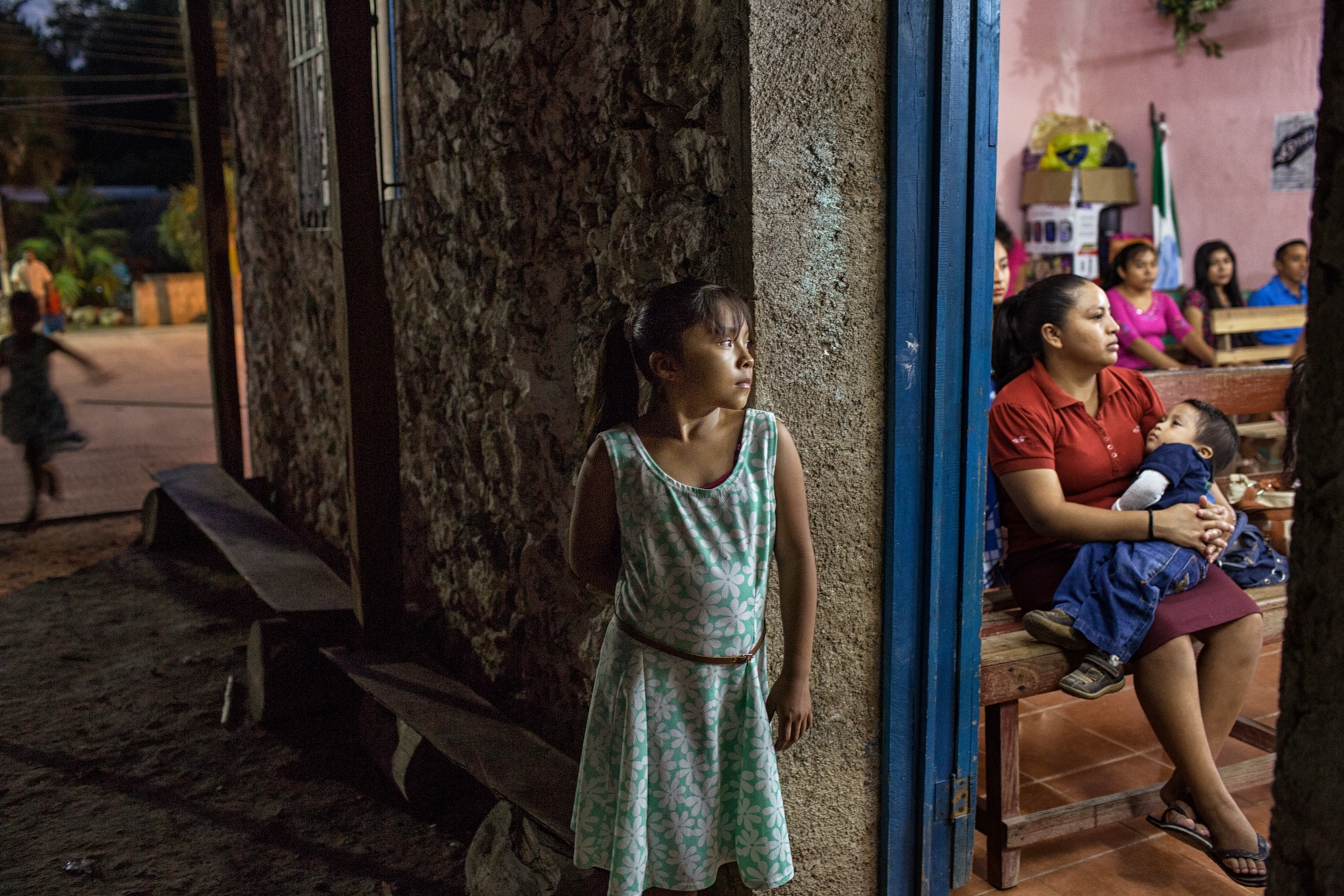
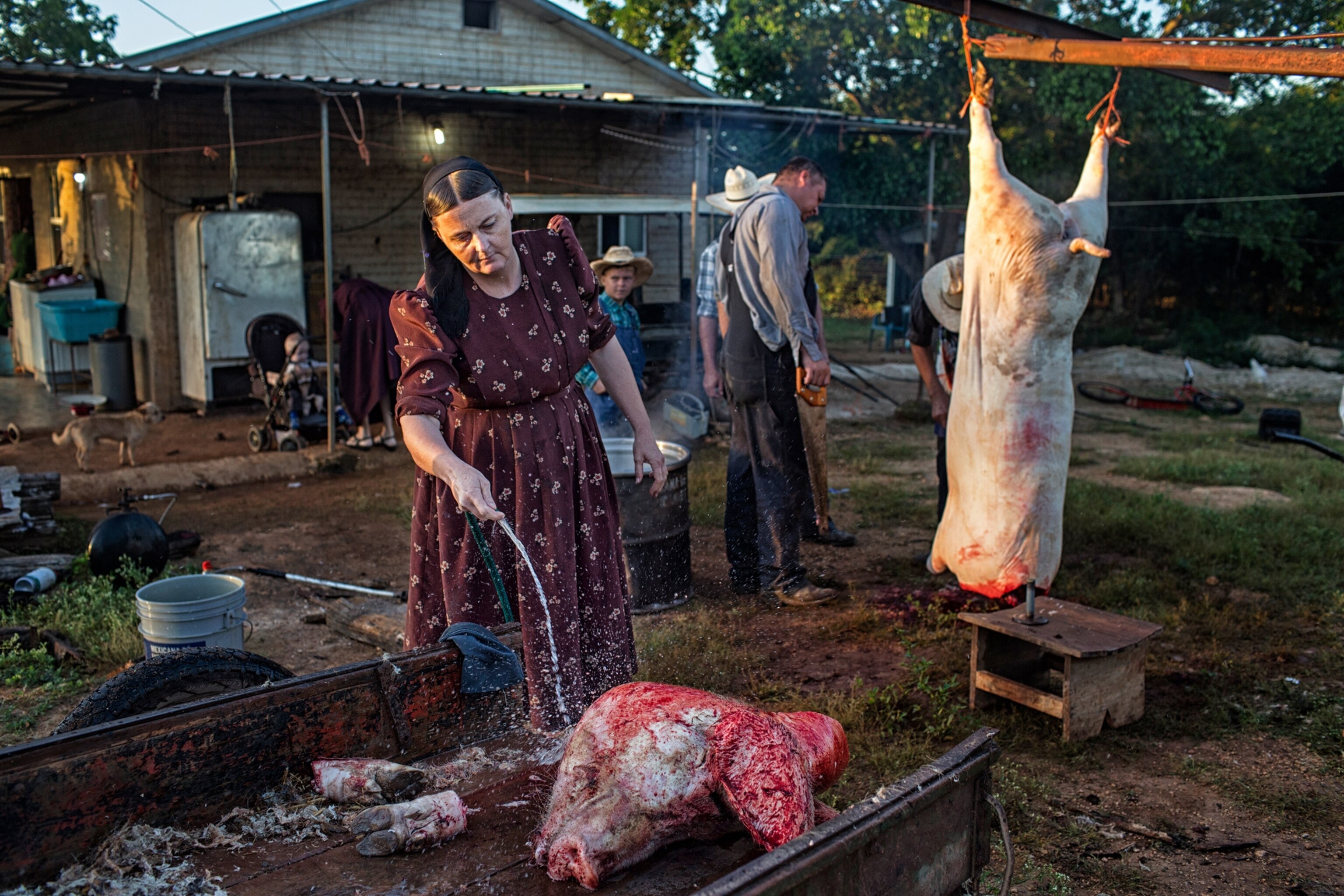
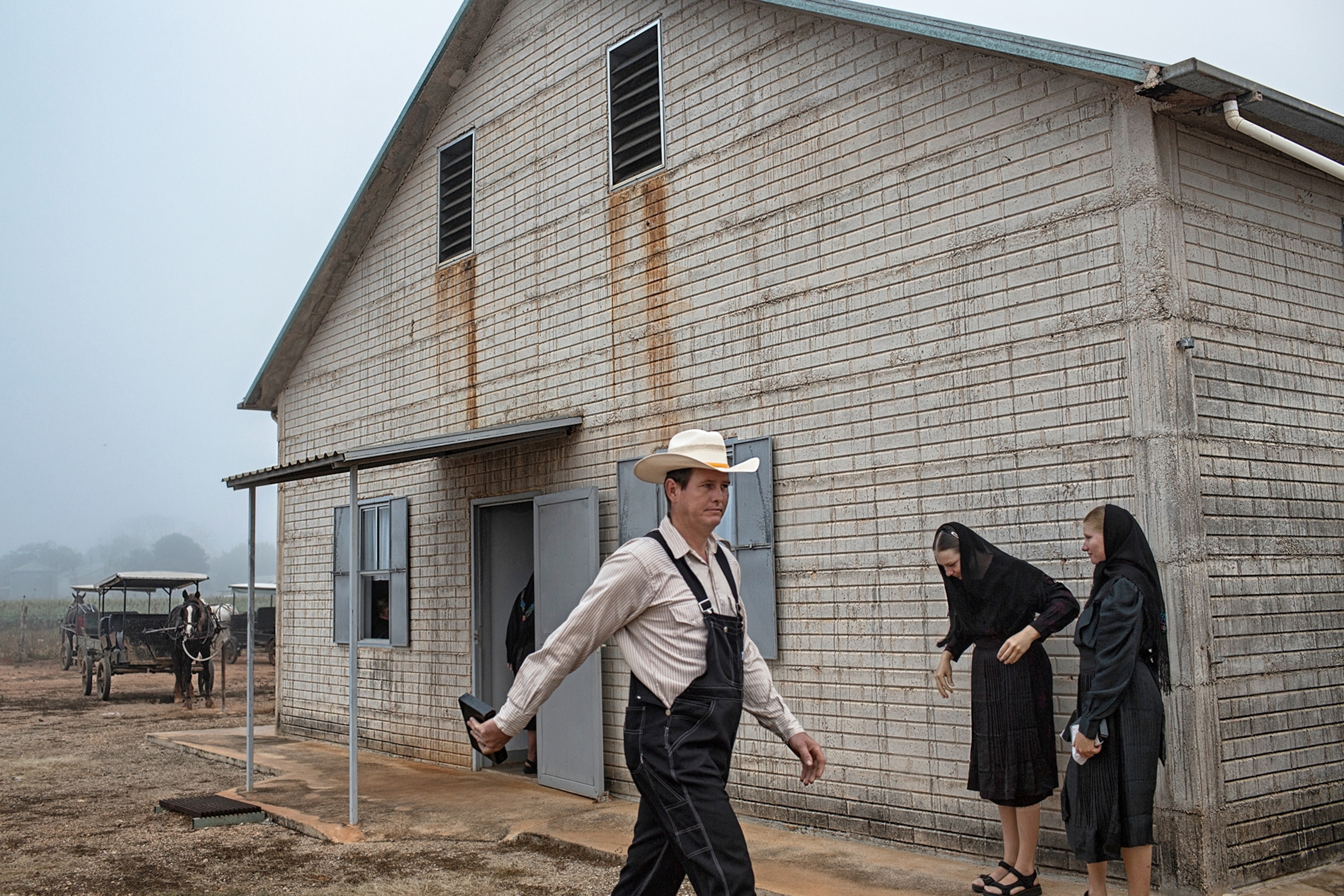
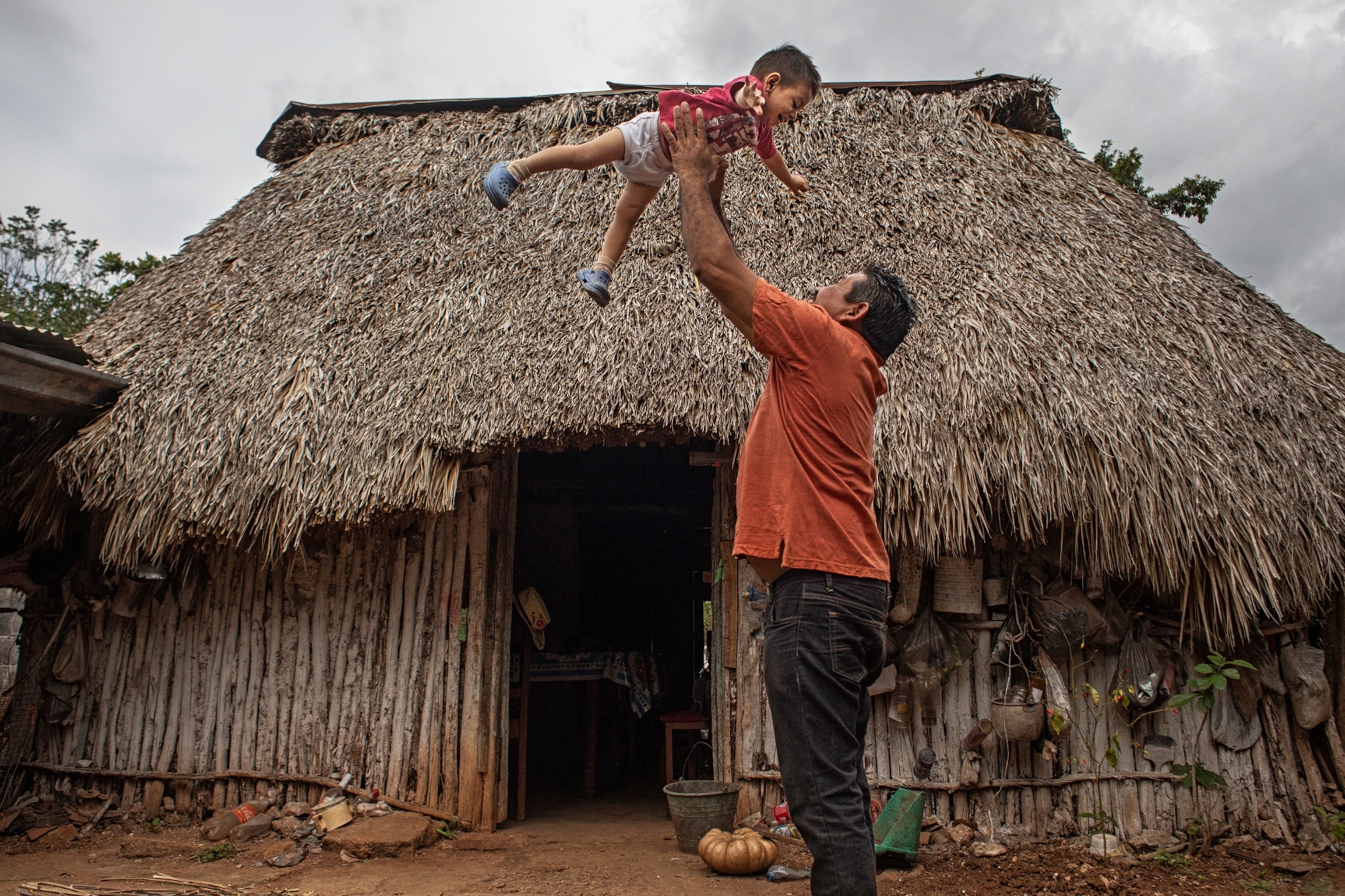
But today, Mennonite farmers admit they are still planting transgenic soy in Campeche, and they’re still spraying it with glyphosate from the sky and from the ground.
“Legally speaking, things were going well, but in reality things are very different,” says Naayeli Ramírez-Espinosa, an Indigenous rights lawyer who worked on the beekeepers’ case. “We know there are still genetically modified soybeans being planted and harvested in the area. The authorities don’t have the capacity to solve these problems. The seed is everywhere already.”
Two hours outside Hopelchén, about 1,500 Mennonites live in a cluster of small communities that form the colony of Nuevo Durango. The dusty road leads straight to the grain silo, where farmers in nearly identical overalls and plaid shirts wait next to a small shop selling tubs of agrochemicals and bags of seed. At dusk, a dim light illuminates a woman making dinner in the single-story home of Heinrich Dyck, one of the colony’s two governors. A lanky cowboy type, he comes outside trailed by his eight children. Swarmed by a halo of shrill bugs, he pulls a chair into the yard and describes the colony’s operations.
In 2016, Dyck says, government officials visited to announce the ban on planting transgenic soybeans. “They said the bees are dying because of liquids we use on soy,” he says. According to Dyck, Nuevo Durango’s farmers mostly respected the ruling. But in 2017, when the government checked the fields, the farmers weren’t fined for the small amount of transgenic soybeans they’d planted anyway. (Other Mennonite communities were fined for illegal clear-cutting.) So the next year they planted the majority of their 3,200 acres with transgenic seeds. Now they plant roughly 4,500 acres.
The relationship is complex: Maya beekeepers who strongly oppose the Mennonites’ methods express admiration for their work ethic and business acumen.
Blackened weeds and weed-free soybean fields across the colony are a sign of glyphosate, which kills everything but the soybean plants—they’re engineered to resist it. Earlier that day, as a harvesting machine chewed through stalks of soy, a Mennonite farmer waiting in the shade said that over the previous four months he’d sprayed his 22 acres of soybeans four times, each time with seven gallons of glyphosate.
The issue of transgenic soybeans is not on the minds of Nuevo Durango’s farmers. Though they profess to have no conflict with Maya beekeepers, they don’t trust the claims that glyphosate is harming bees; some keep bees themselves and say their own hives haven’t suffered.
Their main problem, says Dyck, is the need for more land for younger generations to farm and raise families. The colony recently acquired nearly 10,000 acres by joining the traditional council of landowners—the ejidatario—in the nearby town of Xmabén. That boosts the Mennonites’ landholdings by more than 50 percent and gives space for four more camps, Dyck says.
More than half of Mexico’s forests are owned communally by these land councils, and often this has proved key to their conservation. But in Campeche, forest is turning into farmland. At the turn of the century, nearly 80 percent of the state was forested, and almost half of that was primary forest. Since 2002, according to the monitoring site Global Forest Watch, Campeche has lost more than 526,000 acres of primary forest—almost 10 percent of the total—and 1.9 million acres of forest overall. This rate has put Mexico in the top 10 tropical countries in the world losing primary forest cover. The governments of all three states on the Yucatán Peninsula have pledged to end deforestation and begin restoring land on the peninsula by 2030. That is not the Mennonites’ agenda, however.
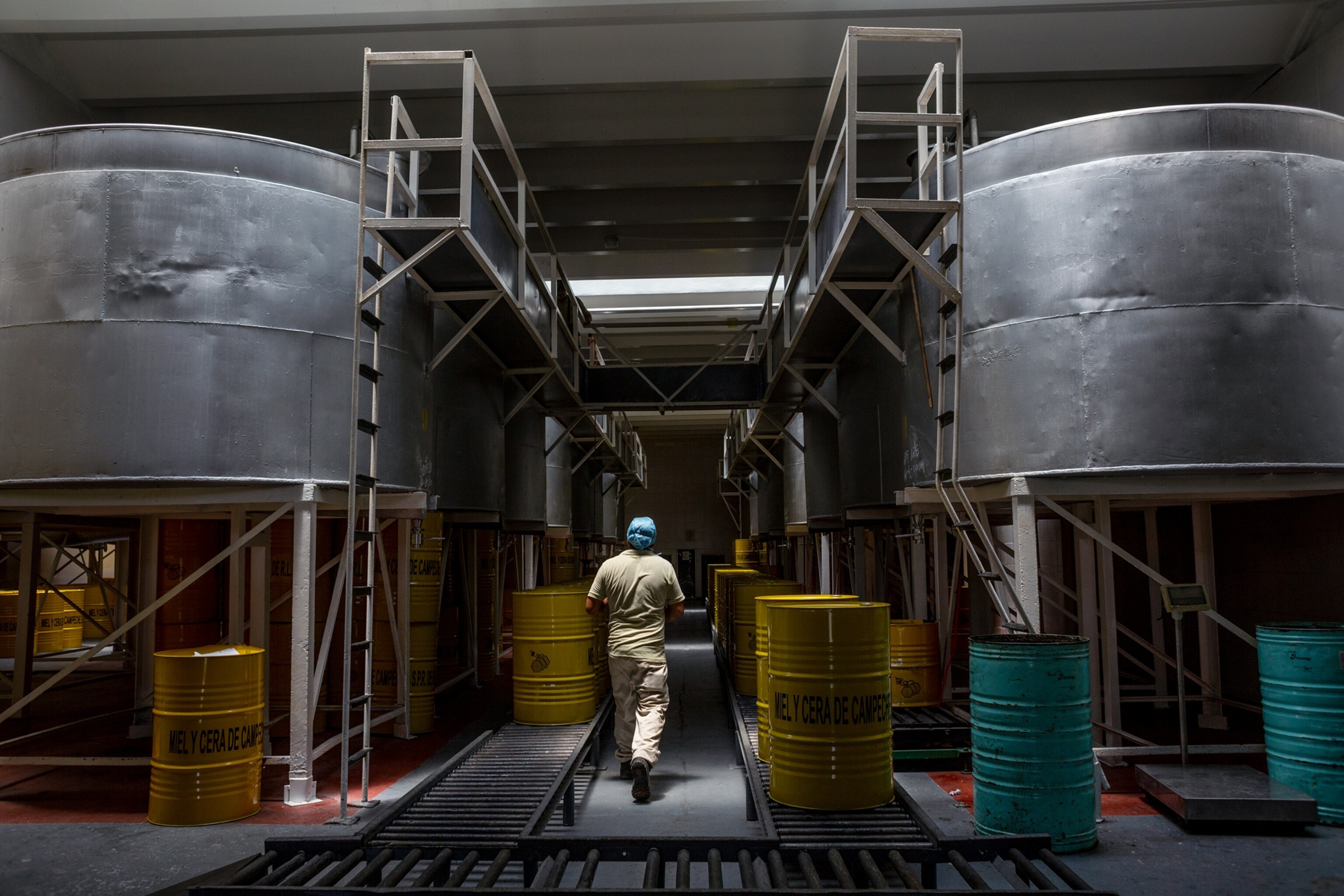
Old Colony Mennonite communities are extremely insular, with no over-arching governing body. Bonnie Klassen, who oversees humanitarian and community development efforts in Latin America for the Mennonite Central Committee (MCC), which is run by modern members of the religion, says that most Old Colony Mennonites get five or six years of education, centered on religion rather than science.
In Bolivia the MCC has mediated land conflicts and deforestation issues between Indigenous peoples and Old Colony Mennonites. Klassen believes that the Mennonites will abide by the law—if it’s enforced. “If you live in a country where laws are not implemented, you prioritize the ones that are,” she says. The Mexican government isn’t enforcing the ban on GM soybeans, and court-ordered consultations with Indigenous beekeepers—who want the ban to be enforced and the pesticide spraying to stop—haven’t really gotten off the ground. It’s unclear where the transgenic seeds are coming from; Monsanto, now Bayer, says it’s not involved. The company says, however, that it will seek to get its transgenic soybean permit reinstated. Then, says Rodrigo Ojeda, a Bayer lawyer, it aims to strike a deal with the Maya communities. “We believe there’s a way to have GM soybean coexist with production of honey by local producers,” he says.

But the relationship between Mennonites and the Maya in Campeche is more complex. Maya communities are embedded in the agribusiness economy built by the Mennonites; many Maya families who rely on beekeeping may also depend, at least indirectly, on the type of farming they say harms it. The 200 landowners in Xmabén who agreed to transfer communal land to the Mennonites each received nearly $10,000, according to a beekeeper whose family was part of the sale. Beekeepers, even some who strongly oppose the Mennonites’ methods, express admiration for their work ethic and business acumen.
Edi Alimi Sánchez embodies this complicated relationship. The lifelong beekeeper sits on a plastic-covered couch, turns down his blaring TV, and describes a common situation in his town of Komchén: For more than 10 years he rented his land to Mennonites—just like most of his neighbors. The Mennonites planted transgenic crops about 20 yards from his beehives.
Sánchez didn’t kick them out, because he no longer could afford the machines and manpower to harvest his own land. When his son-in-law took over the planting recently, it was too late to save the bees. Over the years, Sánchez has lost most of his hives. And he knows there’s no recourse to stop the transgenic planting. “We can’t do anything. The supreme court can’t do anything,” he says. “It’s politics. There’s money.”
Nevertheless, Sánchez doesn’t consider the Mennonites as enemies. “They’re good people,” he says. “It’s just that they destroy nature.”
Staff writer Nina Strochlic’s last story in Mexico was about a cross-border high school cheer team. Photographer Nadia Shira Cohen focuses on social injustice and environmental issues, often in Latin America.
This story was partially funded by the International Women’s Media Foundation.
This story was adapted for the June 2021 issue of National Geographic magazine. Read the original story here.
The National Geographic Society is committed to illuminating and protecting the wonder of our world. Learn more about the Society’s support of its Explorers.